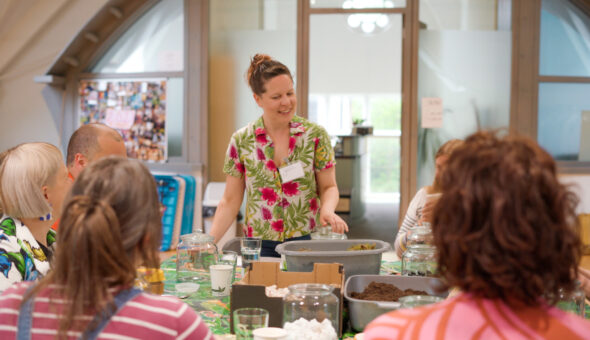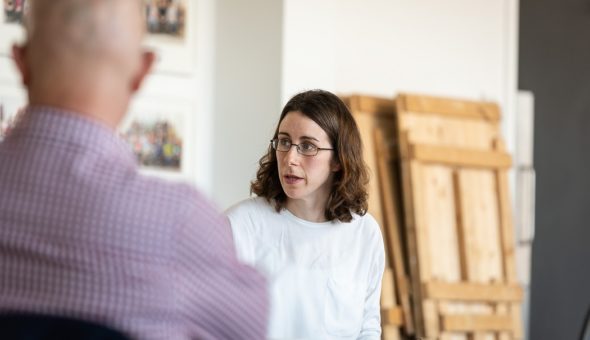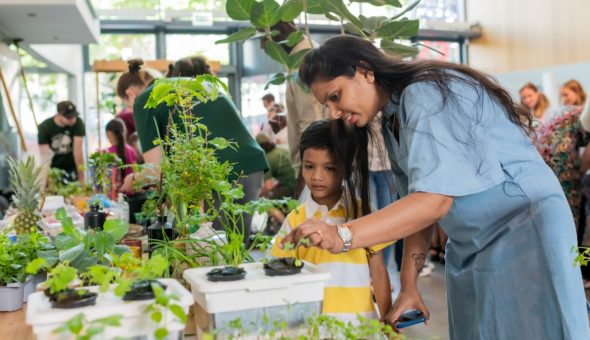Earlier this year, we launched our ParticipatoryResearch@Bath project, find out more about what we have in store for phase two.
In our last blog, we highlighted the key learnings from phase one of ParticipatoryResearch@Bath. In this second phase of the project, which will run until 2024, we are going to put into practice some of the insights from community groups and researchers from phase one and explore some of the emergent ideas further.
The approach we’re taking and why
Our approach to ParticipatoryResearch@Bath will be to foster a change in the culture towards participatory research at the University. At the Public Engagement Unit, we have led similar 'culture change' projects over the last 10 years (Engaged360@Bath and ChallengeCPD@Bath), so feel fairly comfortable with how we might go about affecting change and given the nature of the activities researchers told us they needed to be supported in this area, feel confident we have the skills to deliver that work.
But why a culture change approach? Participatory research “involves people whose lives are the subject of study in some or all aspects of research design, process, dissemination, and impact, with a focus on generating socially just change[1]” which raises issues around “partnership working, power, equality and respect for diverse knowledges”.
Because of these very real sensitivities around participatory research, and the potential of doing harm to those involved, we are taking the time to ensure we get our work, supporting researchers and communities outside the University, right.
We will draw on our expertise and embed in the delivery of ParticipatoryResearch@Bath the desire to create sustained and sustainable change in the systems we have influence over at the University.
ParticipatoryResearch@Bath phase two
Over the second phase of this project, we aim to create and enhance the conditions for participatory research to flourish. We’ll do this through several different work streams.
Building capacity and capabilities
Participatory research as an approach at the University is not consistently defined or not used equally across all disciplines, and work needs to be done to develop 'participatory-ready' systems, knowledge and people at the University. As part of phase two, we will work with researchers and professional services staff on a number of programmes to deliver these systems, including:
- Training and professional development opportunities
- Developing a community of practice for researchers and professional services staff
- Running a seed fund scheme
- Creating case studies of successful participatory research projects and the people undertaking them
Building relationships
If we are to conduct participatory research effectively and ethically, then we need to move from a transactional approach to involving people in research to a relational approach. To do this we will:
- Pilot and run initiatives and programmes that are with and for communities
- Build on the strengths of the University’s current community engagement work to provide a clear access point to the University for communities
Investigating 'emotional labour'
Over phase two, we will investigate the effects of relationships between researchers and citizens contributing to research on the wellbeing of those involved and develop approaches and systems to support people in managing the investment of this emotional labour.
Exploring citizen involvement across the whole research system
Citizen involvement in research has focused on the conduct of research projects themselves, we intend to explore how citizen involvement and participatory principles can be applied to the broader research system using an action-research inquiry-led approach.
The phase two project plan of ParticipatoryResearch@Bath outlines more details of the approach and activities that will be delivered as part of the project.
This work over the next 18 months of phase two of ParticipatoryResearch@Bath will be an investment in the systems at the University of Bath and in the wider community to enable the effective participatory research. Keep an eye out for developments here on our blog.
Dean Veall is Deputy Head of Public Engagement at the University of Bath.
[1] Banks, S. and Brydon-Miller, M. (2019) Ethics in Participatory Research for Health and Social Well-being. Cases and Commentaries. Routledge, London P1
Respond



